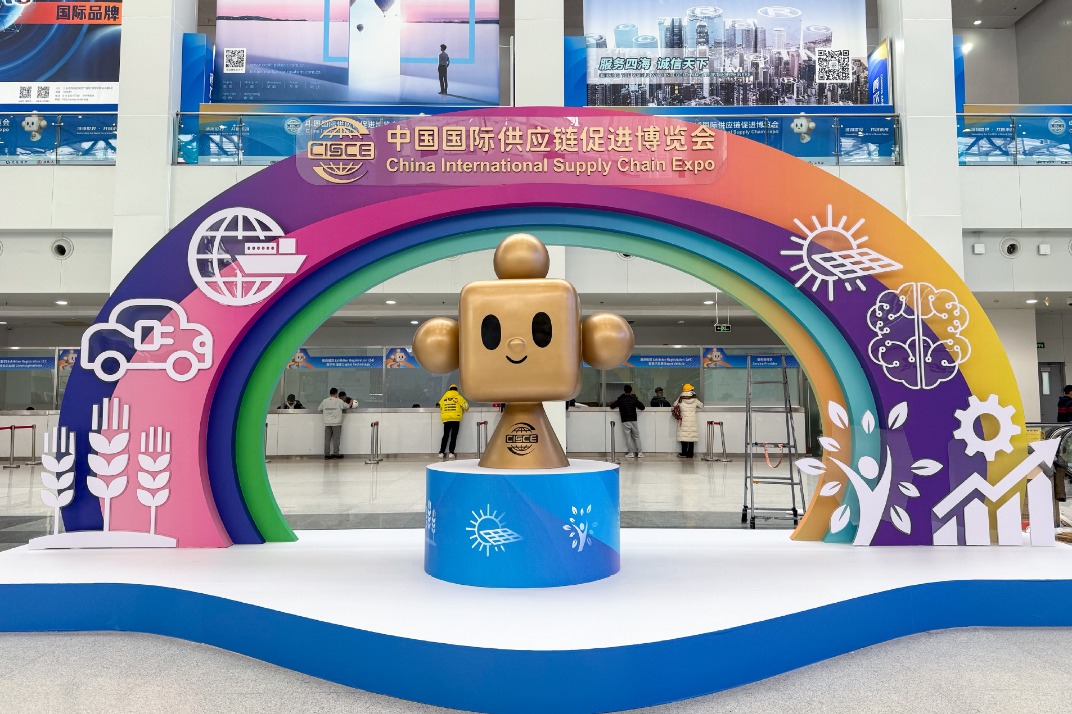Road map charted to drive down logistics costs
Initiative aims to foster unified national market, bolster efficiency of operations

China has charted a clear road map to drive down logistics costs, a move that officials and analysts said is not just about enhancing the competitiveness of industries, but also about strengthening the foundation of the real economy as a whole.
The initiative will help foster a truly unified national market and bolster economic operations, and China will be better positioned to play a key role in global supply chains, they added.
According to the plan, which was issued on Wednesday by the general offices of the Communist Party of China Central Committee and the State Council, the world's second-largest economy is scheduled to bring down the logistics cost-to-GDP ratio to around 13.5 percent by 2027.
According to the plan, China will scale up railway logistics, promote scalable road freight, optimize urban freight networks and advance the sharing of logistics information, to foster an integrated national logistics ecosystem.
The plan also highlights the need to clear bottlenecks that are hindering logistics efficiency and reducing cost competitiveness. These include incomplete infrastructure networks, disconnected multimodal transportation interfaces, and the lack of a well-developed modern supply chain system.
Logistics across the primary, secondary and tertiary sectors serves as the "veins" of China's real economy, connecting the manufacturing base to the consumer market, and it facilitates China's participation in global trade, said He Dengcai, vice-president of the China Federation of Logistics and Purchasing.
Despite efforts in recent years to slash logistics costs, China's logistics expenditure as a percentage of GDP remains relatively higher than that of developed economies, said He.
Last year, China's total logistics costs accounted for 14.4 percent of its GDP, while the ratio in developed countries such as the United States and Japan stayed at around 7 to 8 percent, according to He, who emphasized the gap that China faces in its push to build an integrated and cost-effective logistics network.
Wen Bin, chief economist at China Minsheng Bank, said that efficient logistics can act as a force multiplier, boosting the competitiveness of China's real economy and sharpening its ability to adapt to downward pressures and external uncertainties. This, in turn, would strengthen the foundations for sustained economic growth, Wen added.
Zhang Shixin, deputy secretary-general of the National Development and Reform Commission, told a news conference on Thursday that the manufacturing industry is poised to enhance its edge through the optimization of logistics systems, as the industry's logistics volume accounts for some 90 percent of China's total.
In particular, to further enhance the competitiveness of electric vehicles, lithium-ion batteries and photovoltaic products, specific measures to improve logistics efficiency and convenience for these green high-tech products have been fleshed out in the plan.
In the face of tariff hikes expected to be imposed on these products by some countries, lowering logistics costs will provide a boost to the export prowess of these industries and help preserve the stability of global industrial and supply chains, said Wen, from China Minsheng Bank.
wangkeju@chinadaily.com.cn
?




































